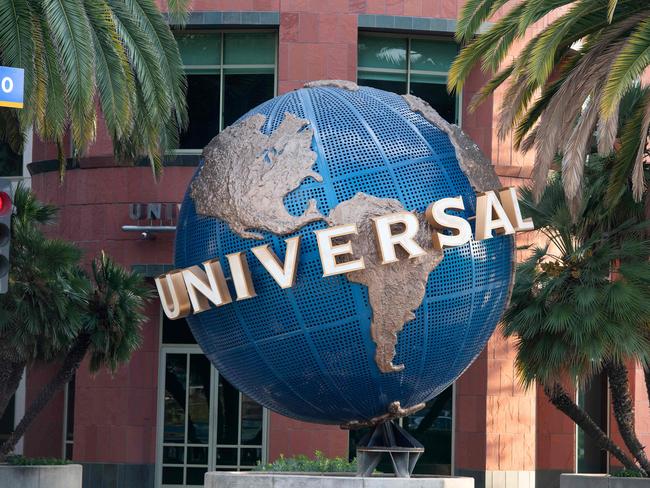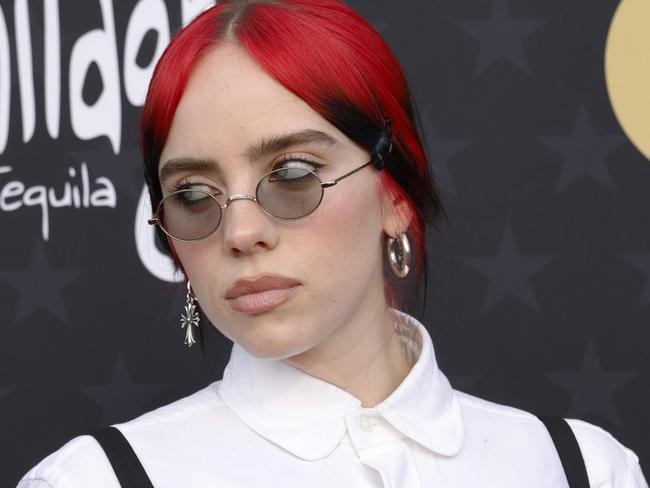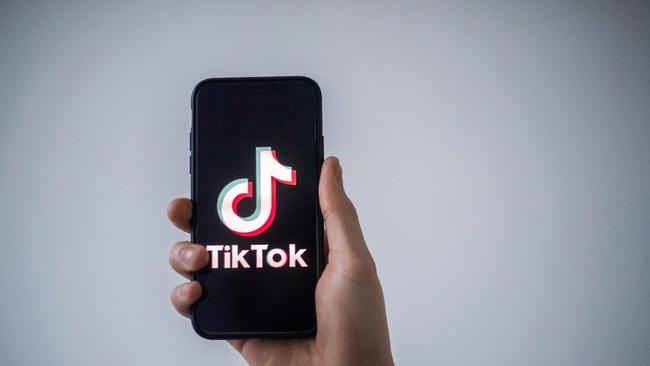Universal Music Group plans to pull song catalogue from TikTok
Social network TikTok has issued a scathing statement against Universal Music after the label’s threat to pull all its songs from the platform.
Music
Don't miss out on the headlines from Music. Followed categories will be added to My News.
Universal Music and TikTok are never ever getting back together – for now – as the social media platform hit back at the threat by the music giant to rip its songs off the platform as negotiations over royalty payments broke down.
TikTok responded to Universal Music Group with a statement accusing the world’s biggest music company of putting “greed above the interests of their artist and songwriters.”
The unprecedented war of words between the entertainment behemoths kicked off this week with Universal taking the nuclear option of removing their songs in an attempt to prove TikTok needs music to enhance the experience of watching videos on the platform.
But TikTok responded to Universal’s “open letter” threat with an equally incendiary statement overnight.
“It is sad and disappointing that Universal Music Group has put their own greed above the interests of their artists and songwriters,” TikTok said.

“Despite Universal’s false narrative and rhetoric, the fact is they have chosen to walk away from the powerful support of a platform with well over a billion users that serves as a free promotional and discovery vehicle for their talent.
“TikTok has been able to reach ‘artist-first’ agreements with every other label and publisher. Clearly, Universal’s self-serving actions are not in the best interests of artists, songwriters and fans.”
Millions of songs by some of the world’s biggest pop artists including Taylor Swift, Billie Eilish, Drake, BTS and Olivia Rodrigo are set to disappear from TikTok this week.
Universal Music Group has accused the social media platform of “bullying” tactics during negotiations for a fair royalty rate for their artists and their music.
After coming to no agreement, UMG announced they would yank their artists’ music from the platform and its streaming service TikTok Music when their current licensing contract expires.
In an open letter posted on January 31, UMG said the deal renegotiation centred on three important issues – “appropriate compensation for our artists and songwriters, protecting human artists from the harmful effects of AI, and online safety for TikTok’s users.”

UMG accused TikTok of using bullying tactics to force them to accept a lower royalty rate for the use of hit tracks from Swift’s Karma to Stick Season by current chart star Noah Kahan.
The world’s biggest music company claimed TikTok’s actions were designed to hurt “vulnerable” up and coming artists despite the platform publicly stating that “music is at the heart of the TikTok experience.”
“As our negotiations continued, TikTok attempted to bully us into accepting a deal worth less than the previous deal, far less than fair market value and not reflective of their exponential growth,” the UMG statement alleges.

“How did it try to intimidate us? By selectively removing the music of certain of our developing artists, while keeping on the platform our audience-driving global stars.
“TikTok’s tactics are obvious: use its platform power to hurt vulnerable artists and try to intimidate us into conceding to a bad deal that undervalues music and shortchanges artists and songwriters as well as their fans.
We will never do that.”
It is understood all songs by artists signed to UMG labels will disappear from the platform owned by Chinese tech company ByteDance.
TikTok has become one of the most influential platforms for fans to discover new artists and also pay tribute to their favourite pop stars by using their songs to soundtrack their dance videos or other online trends.
Artists who have been catapulted to global stardom by going viral on the site or marketing their music directly to TikTok fans include Lil Nas X, Lizzo, Doja Cat and Olivia Rodrigo.

The major label groups including Universal, Sony and Warner make billions of dollars annually from the royalty payments from streaming services and social media sites including Spotify, Apple, Deezer and TikTok.
They usually renegotiate licensing contracts every couple of years.
Taylor Swift famously removed her entire catalogue of songs and albums from Spotify a decade ago in protest at the availability of music on the platform’s free, ad-supported tier.
“It’s my opinion that music should not be free,” she wrote in an oped penned for the Wall Street Journal.
Australian music influencers using the platform had the songs they used on their videos removed in a secret month-long experiment in early 2023 which TikTok claimed was a test to analyse how music is used on the global site.
Taking the songs off their posts made them relatively unwatchable.
Influencers protested their content had been subject to the test without their knowledge while industry insiders claimed it was an attempt by ByteDance to “downplay the significance of music on its platform” ahead of royalty negotiations.
“After exploiting artists’ content and relationships with fans to build the platform, TikTok now seeks to rationalise cutting artists’ compensation by staging a ‘test’ of music’s role in content discovery,” ARIA CEO Annabella Herd said last year.
More Coverage
Originally published as Universal Music Group plans to pull song catalogue from TikTok





